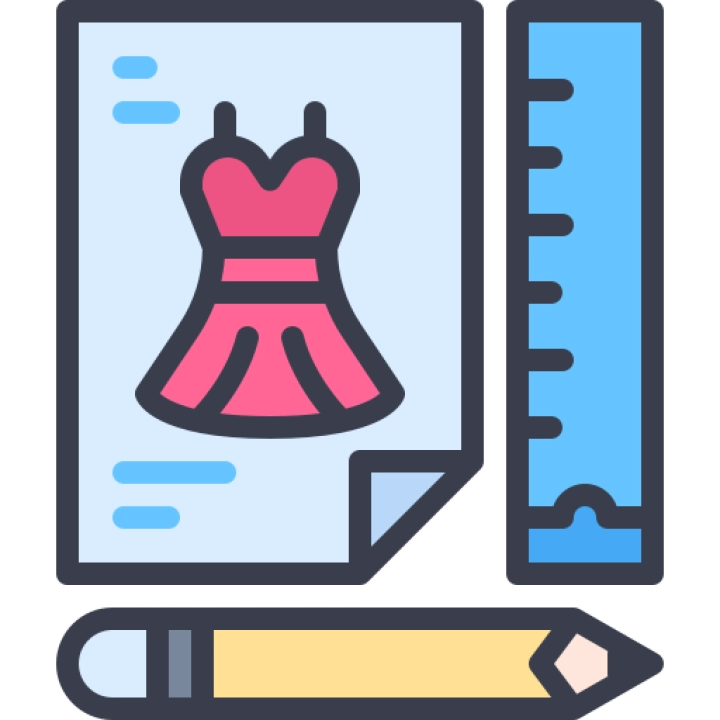College: Graduate Programs Institute
The Fashion Design major focuses on the creative and artistic aspects of clothing and accessories design. Students acquire skills in fashion illustration, pattern making, garment construction, textiles, fashion history, industry trends, and prepare for careers in fashion design, marketing, styling, and related fields.
Learning Objectives:
- Understand principles of fashion design and industry trends.
- Develop skills in fashion illustration, pattern making, and garment construction.
- Learn about textiles and fabric selection.
- Explore fashion history and cultural influences on design.
- Analyze fashion marketing and retail strategies.
- Develop critical thinking, problem-solving, and creative skills.
- Gain practical experience through projects and internships.
Main Curriculum:
- Introduction to Fashion Design - Overview of fashion design principles, history, and current trends.
- Fashion Illustration - Techniques for creating fashion illustrations.
- Pattern Making - Principles of pattern creation for garment construction.
- Garment Construction - Techniques for constructing and assembling clothing.
- Textiles - Understanding fabric properties, selection, and care.
- Fashion History - Exploring historical and cultural influences on fashion design.
- Fashion Marketing - Strategies for marketing and selling fashion products.
- Fashion Design - Principles of fashion design and presentation.
- Computer-Aided Design (CAD) for Fashion - Using CAD programs for fashion design and pattern making.
- Sustainable Fashion - Principles of designing and producing fashion responsibly.
- Fashion Industry Trends - Analyzing emerging and current trends in the fashion industry.
- Practical/Application Training - Real-world experiences in fashion design studios, retail companies, design agencies, or related industries.
- Capstone Project - A comprehensive project applying fashion design skills, such as creating a fashion collection, developing a marketing strategy, or conducting trend analysis.
Assessment Methods:
- Fashion design principles analysis
- Fashion illustration projects
- Pattern making projects
- Garment manufacturing projects
- Textile projects
- Fashion history projects
- Fashion marketing projects
- Fashion design projects
- CAD programs for fashion projects
- Sustainable fashion projects
- Fashion industry trend projects
- Internship reports
- Capstone projects and presentations
Recommended Textbooks:
- "Introduction to Fashion Design"
- "Fashion Illustration"
- "Pattern Making"
- "Garment Manufacturing"
- "Textiles"
- "Fashion History"
- "Fashion Marketing"
- "Fashion Design"
- "CAD for Fashion"
- "Sustainable Fashion"
- "Fashion Industry Trends"
Prerequisites:
Basic knowledge of art principles and design programs, with an interest in fashion design.
Program Duration:
The undergraduate program in fashion design typically lasts 4 years.
Certification:
Graduates may earn certifications such as:
- Certified Fashion Designer (CFD)
- Certified Textile Professional (CTP)
- Certifications in specific fashion design programs and techniques
Target Audience:
Aspiring fashion designers, retailers, textile designers, and professionals seeking careers in fashion design studios, retail companies, design agencies, and related industries. This major equips students with creative, artistic, and problem-solving skills essential for excelling in fashion design, supporting careers in various roles within design studios, retail companies, design agencies, and related fields. The program offers comprehensive education in fashion design principles, illustration, pattern making, garment construction, textiles, fashion history, marketing, design, computer-aided fashion design, sustainable fashion, industry trends, and prepares students for successful careers in the fashion industry.









